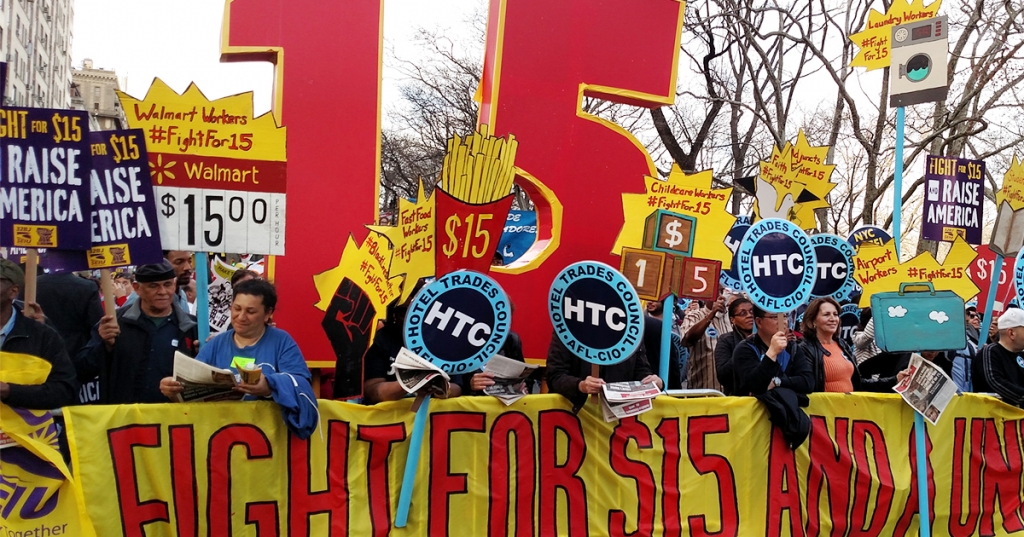-
Tips for becoming a good boxer - November 6, 2020
-
7 expert tips for making your hens night a memorable one - November 6, 2020
-
5 reasons to host your Christmas party on a cruise boat - November 6, 2020
-
What to do when you’re charged with a crime - November 6, 2020
-
Should you get one or multiple dogs? Here’s all you need to know - November 3, 2020
-
A Guide: How to Build Your Very Own Magic Mirror - February 14, 2019
-
Our Top Inspirational Baseball Stars - November 24, 2018
-
Five Tech Tools That Will Help You Turn Your Blog into a Business - November 24, 2018
-
How to Indulge on Vacation without Expanding Your Waist - November 9, 2018
-
5 Strategies for Businesses to Appeal to Today’s Increasingly Mobile-Crazed Customers - November 9, 2018
McDonald’s stores targeted by protests for $15 an hour
Fast food workers at several St. Louis restaurants are walking off the job on Thursday. Early this month, both California and New York State enacted laws raising their minimum wage to $15 an hour over a period of years.
Advertisement
California has enacted a statewide $15 hourly minimum wage that begins to phase in next year, before taking full effect in 2022. Fight For 15, the activist group behind the event, started originally in NY as a small coalition of fast-food workers, but has since spread into a national and global “movement”, composed of workers from all different industries.
Another reason workers are rallying is because if San Diego’s minimum wage hike is passed on the June ballot, workers will get paid more sooner.
Janitors, home care and child care workers are expected to participate in Thursday’s rally. “You’re still living in poverty, and you go to work every single day making billion-dollar corporations rich”, said McDonald’s worker Angel Mitchell to the news outlet. “I would have come out $150 I don’t really have”, she said, and have to “decide whether to pay the utility bills or buy food for the family”.
A McDonald’s spokeswoman noted in a statement that the restaurant chain raised its minimum wage for employees at company-owned restaurants and offers educational opportunities to workers. Under the city ordinance, the minimum wage will increase to $10.50 on July 1 and eventually reach $15 per hour in 2020, with future increases pegged to the Consumer Price Index. There’s often pushback because of this; detractors seem to believe that we don’t need to pay the people we expect to serve us food much money, because those jobs are for high school students. It’s when workers like Joanne Edmond of Brockton will rally outside the State House in support of the most basic and fundamental part of the American dream: a wage that can support her and her son. San Jose’s wage rose to $10.30 per hour in January 1, 2015, and is set to continue climbing depending on the CPI.
“You could have a real potential drain on morale and productivity”, Starkman says. Instead, it encourages employers to pay as little as they can, knowing that the other options for workers aren’t that great. “It would be nice if I could take them out…”
Advertisement
The restaurant industry is particularly sensitive to the minimum wage because it hires large numbers of entry-level, low-skilled workers.





























